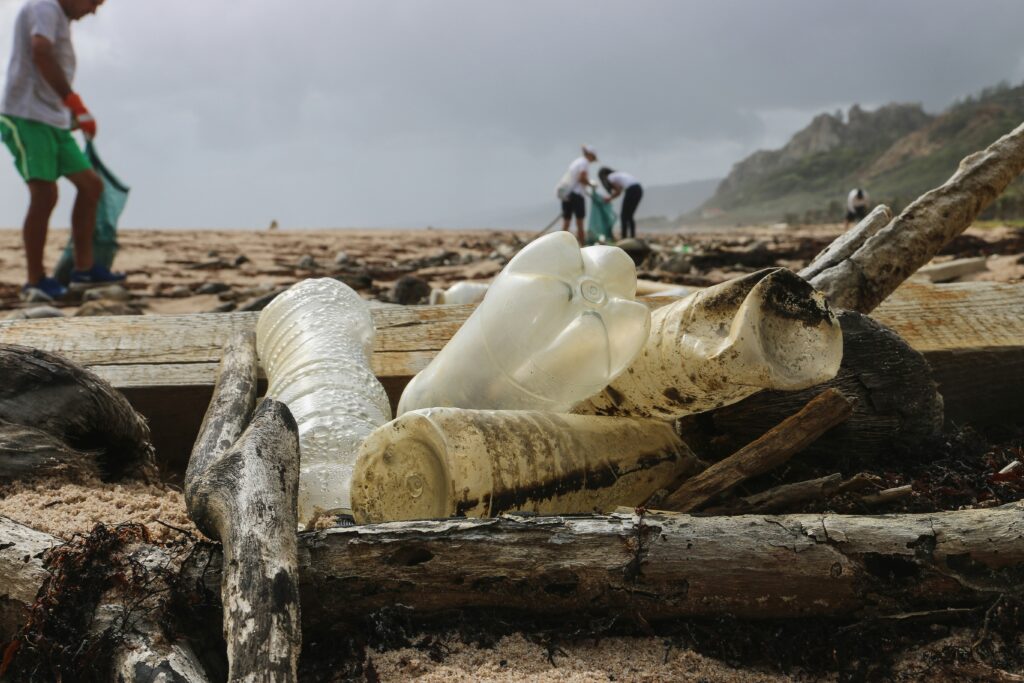Biodiversity Sri Lanka (BSL) is playing a pivotal role through the PLASTICS project, an ambitious, multi-partner initiative aimed at promoting a sustainable and circular economy for plastics in Sri Lanka. Funded by the EU’s SWITCH-Asia program, this 48-month project is designed to boost economic development in the plastics value and supply chains (V/SC) by supporting Small and Medium Enterprises (SMEs) through innovative approaches to resource efficiency, green finance, and sustainable waste management.
The overall objective of the project is to facilitate sustainable and innovative plastic minimisation and management in Sri Lanka by integrating SMEs in greener value and supply chains, thereby contributing to economic prosperity and environmental sustainability.
The four main outputs of the PLASTICS project are:

BSL’s Key Goals are Activity 3 and Activity 4.
Activity 3: Access to green finance and Investment’s dimension are increased to scale up green economic initiatives, especially among Businesses
Activity 4: The traceability, transparency, and compliance in plastic SWM are strengthened through public-private dialogue, collaboration and monitoring
A Focus on SMEs and Green Finance
The project aims to engage 150 SMEs, 10 entrepreneurs, and 50 Business Development Service providers to foster a collaborative environment for green business development. BSL’s work under Activity 3 involves engaging the SMEs in the circular economy, and creating awareness of green financing options. These awareness sessions, held in Colombo, Gampaha, and Kalutara in August and September 2024, encouraged SMEs to rethink their business models, adopting more sustainable and resilient approaches that align with circular economy principles.
Event held for SMEs in Colombo at the BMICH on 15 August 2024
Event held for SMEs in Kaluthara at the Royal Oshin hotel on 12 September 2024
Event held for SMEs in Gampaha at the KayJay hotel on 13 September 2024
Why promote a Circular Economy?
A circular economy promotes efficient use of resources, reducing waste by encouraging the reuse and recycling of materials. For businesses, especially in sectors that use plastics, adopting circular economy practices means less dependency on raw materials, cost savings, and compliance with evolving environmental regulations. Climate change is also a significant business risk, and understanding how to mitigate its impacts—while taking advantage of green finance options—can help businesses remain competitive in an increasingly eco-conscious market.
BSL is at the forefront of helping SMEs in Sri Lanka navigate these challenges, providing valuable insights into the circular economy and green financing incentives. These efforts are particularly focused on women-led businesses, helping them improve their competitiveness, expand their value addition, and access resources for scaling up sustainable practices.

Extended Producer Responsibility (EPR)
Another vital aspect of BSL’s contribution is through Activity 4, which focuses on advancing Extended Producer Responsibility (EPR) in Sri Lanka. EPR shifts the responsibility for post-consumer plastic waste management onto producers, ensuring they play a key role in the entire lifecycle of their products—from production to disposal. This strategy encourages responsible manufacturing and supports the proper collection and recycling of plastics.
In August 2024, BSL co-hosted the EPR Symposium in collaboration with the Ceylon Chamber of Commerce, bringing together industry leaders, policymakers, and environmental advocates to discuss how innovation can help advance environmental responsibility. The symposium was a unique opportunity to celebrate the progress made in promoting EPR in Sri Lanka, and to explore new frontiers in sustainable plastic management. By focusing on collaboration and innovation, BSL is helping Sri Lankan businesses take ownership of their environmental impact, ensuring that sustainability becomes a core part of their business strategies.
Looking Forward
With continued support from BSL and its partners, the PLASTICS project is paving the way for a sustainable future for Sri Lanka’s plastics industry. By promoting circular economy principles, facilitating access to green finance, and strengthening waste management frameworks, the project is helping businesses – both large and small – contribute to environmental conservation while improving their own resilience and competitiveness.
Through initiatives like the LIFE Series of projects and active collaboration with government agencies, BSL is ensuring that the private sector remains a powerful force for positive change in Sri Lanka’s journey towards sustainability.
Keep an eye on our newsletter for more updates on this transformative project, and find out how you can get involved in shaping a greener, more sustainable future for Sri Lanka.



